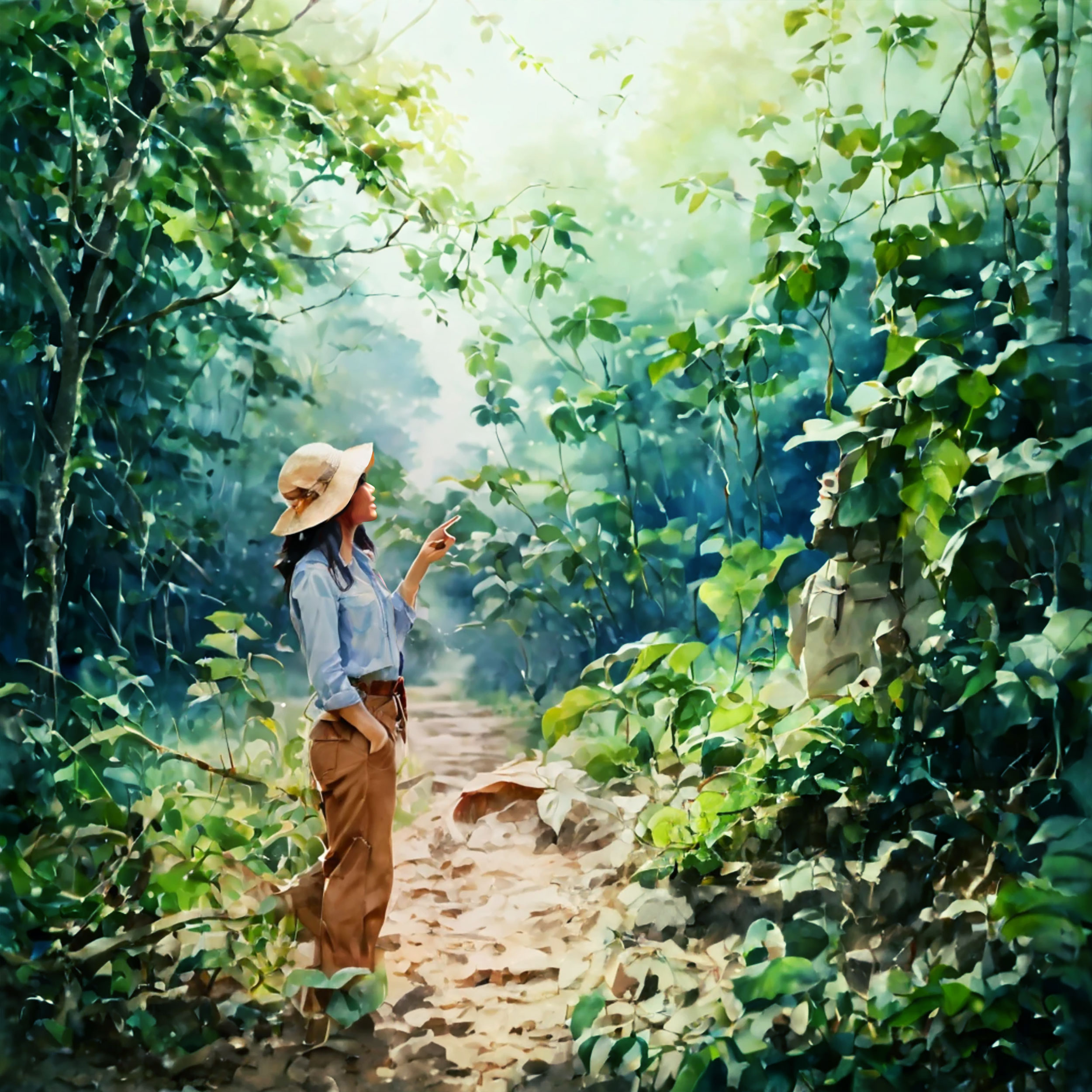Vietnam
Promoting the Richness of Biodiversity
One afternoon, while leaving school, a young Trang Nguyen heard a distressing grunting noise coming from a neighbor’s home. Intrigued, she tiptoed into the gate to investigate. She witnessed a dreadful sight: a massive bear on the ground. A man wielding a large needle, plunging it into the bear’s chest. Trang didn’t understand bear bile farming back then, but the cruelty was unmistakable. Horrified, she screamed and fled.

Following this harrowing experience, a deep sense of responsibility and determination took root within Trang. She would take action against the injustice and cruelty she had witnessed. And it wouldn’t just be for the bears, but for all animals she’d seen suffering at the hands of human actions—from the monkeys chained for sale on streets to the birds crammed into cages.
But growing up in Vietnam, the concept of conservation seemed like an alien path for a young girl. The cultural norms and societal expectations confined her aspirations to more conventional professions. Determined to break through these barriers, she scavenged for any information she could find on conservation. With lunch money saved, she sought out knowledge in a sea of English books she could hardly comprehend.

Years passed, and with unyielding persistence at 18, Trang defied conventions and embarked on a journey to the UK to study wildlife conservation. She later found herself in the world of undercover operations, infiltrating the dark underbelly of the illegal wildlife trade. Her encounters with criminal syndicates were fraught with danger, but she persisted, often at great personal risk. Driven by an unshakeable commitment, she helped disrupt and expose numerous syndicates, leading to their imprisonment.


As she evolved as a conservationist, Trang identified critical gaps in Vietnam’s conservation sector. There was a lack of formal wildlife conservation courses, which resulted in a scarcity of skilled local staff. Trang also observed how women, despite forming the majority in conservation training workshops, faced barriers rising to higher positions. In her own experience as a director, she faced instances where partners would bypass her and instead engage with her male staff. Additionally, Trang noticed that women engaged in fieldwork often faced unreported sexual harassment, discouraging them from pursuing careers in conservation.
Trang’s creation of Wildact aimed to bridge these gaps. By nurturing local capacity, Wildact has cultivated a new generation of Vietnamese wildlife conservationists. These individuals have played a crucial role in addressing the nation’s substantial responsibilities concerning wildlife conservation and management.


Similarly, the organization has improved gender equity in conservation by providing enabling environments and spaces for women and men to safely and effectively engage in wildlife conservation in Vietnam. Currently, Wildact is the sole entity in Vietnam that provides a gender-based, violence-free working environment for all in conservation.
Beyond these initiatives, Wildact continues to champion the core reason that initially inspired Trang to become a conservationist: safeguarding endangered species and habitats in Vietnam.

Biodiversity hotspots are places where lots of different species are found in a relatively small area. Keeping these species safe helps maintain the complex web of life that sustains our planet.

Importantly, the richness of biodiversity serves as a natural defense mechanism against the challenges presented by climate change. Diverse ecosystems, with their variety of species and interactions, are inherently better prepared to handle disturbances and adapt to environmental changes. Protecting these areas goes beyond ensuring the survival of unique species; it actively strengthens the resilience of ecosystems.

Consider these tips:
Personal
Educate yourself on environmentally safe consumerism and tourism. Many forms of animal cruelty that threaten species and ecosystems are directly tied to international tourism. Specific examples of this include riding elephants, consuming animal-based foods such as shark fin soup, and purchasing wildlife products such as tortoise shells.
Community
Support and participate in educational programs that aim to fill knowledge gaps in conservation, especially in regions where formal training is lacking.
Share Your Ideas
We would love to hear from you! Do you have a story to share about your actions to combat waste in your community? Please send your story to engage@daughtersforearth.org. You can support all Daughters by donating below.


 Donate
Donate